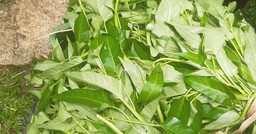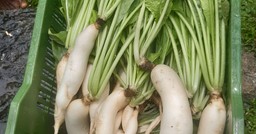- 9 May 2022
Growing Our Own Produce
Whilst the disruptions and restrictions to the global supply chain and local import regulations challenge the structure of the food chain for the hotel and tourism industry, we’d like to believe it has also encouraged us, or rather coaxed us, into exploring indigenous ingredients and curating menus primarily focused on hyperlocal produce.
Whilst the disruptions and restrictions to the global supply chain and local import regulations challenge the structure of the food chain for the hotel and tourism industry, we’d like to believe it has also encouraged us, or rather coaxed us, into exploring indigenous ingredients and curating menus primarily focused on hyperlocal produce.
We’ve taken the time to rediscover lost Sri Lankan heirloom crops and although there have been several complexities and roadblocks, over time we have learned to circumnavigate them and emerge more creative, stronger and more in tune with a bountiful basket of local produce that form the heart of our culinary offering at Resplendent Ceylon.
The farm-to-table catchphrase may seem a tad cliched, but we’ve upped the freshness ante in encouraging the idea of eating locally and seasonally.
The passion for good food begins in our very own garden patches. Maintained by our own kitchens, we have an increasing quantity of herbs, chillies and organic vegetables including radish, kangkung (water spinach), tomatoes, eggplant, carrots, spinach and other greens to name a few. Innovative composting methods on site which create an organic liquid fertiliser is used to keep these gardens healthy and flourishing.
Using evidence based research, this liquid fertiliser is in its trial phase with promising results. The concentrated liquid fertiliser is trialled through various dilutions to identify its optimum strength while minimising waste. This phase has proved to be extremely beneficial as it has given us the opportunity to go back to our roots using Traditional Ecological Knowledge (TEK) of including organic manure to increase the nitrogen content of the liquid fertiliser.
Following its successful trial phase, this liquid fertiliser will be used across our hydroponic systems at our resorts ensuring an organic, homegrown produce. With the aim of reducing our carbon footprint, particularly scope 3 emissions, and providing our guests with the very best hyperlocal produce, we at Resplendent Ceylon hope to expand these hydroponic systems in the future, supporting the idea of eating locally and seasonally.

Extended Stay Savings
Extend your stay for 6+ nights at Cape Weligama, save more and enjoy the holiday of a lifetime.


















